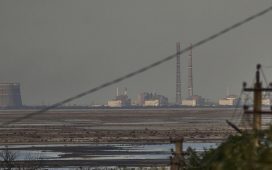Twenty of the world’s best rugby teams have spent the past five weeks knocking the stuffing out of each other, all to confirm what the British bookmakers could have told you two months ago. The semifinalists of the Rugby World Cup are England, South Africa, Wales and New Zealand—just like the bookies called it.
It’s not like they were taking much of a risk by making that quartet the pre-tournament favorites. South Africa is a two-time champion. England and Wales have both been the No. 2-ranked side in the world over the past couple of years. And the triple-world champion New Zealand All Blacks are, needless to say, the All Blacks. Not dubbing them automatic favorites at a Rugby World Cup would be as clueless as asking what color their jerseys are.
So here we are, staring at an intensely predictable semifinal lineup of heavyweights: England vs. New Zealand and Wales vs. South Africa. Not that anyone in the sport thinks this is a bad thing—except maybe France, which lost its quarterfinal by a point.
“Where else would we rather be than playing in the semifinal of World Cup against New Zealand?” England fly-half George Ford said.
Where else could they have been anyway? England has won all five of its games in Japan by an average margin of 25 points. New Zealand and South Africa stomped opponents with even greater violence on their roads to the semis.
All of which has served to underline one simple fact that is deeply ingrained in the structure of world rugby: the world doesn’t have very many excellent rugby teams.
Photo:
christophe simon/Agence France-Presse/Getty Images
The eight World Cups since the tournament’s inception in 1987 have been won by just four different countries. The eight soccer World Cups since 1986, by comparison, have seen six different winners.
But the reality is that rugby isn’t nearly as global as it looks. The sport’s governing body has just 105 member associations, less than half the membership of FIFA. And rugby’s history as a sport that athletes could legitimately earn a living at is surprisingly short—the International Rugby Board only approved professionalism in 1995. Even the U.S. Professional Bowlers Association was three decades old by then.
The result is that the traditional homes of rugby in Western Europe, Australia, New Zealand and South Africa remain more or less the only elite games in town. World Rugby is trying to change that—the World Cup had never been held in Asia before this fall—but progress is slow.
Photo:
issei kato/Reuters
The quickest way for younger rugby nations to make progress is to take advantage of favorable eligibility rules and recruit players from outside their borders. Living in a country for three years without having represented another country at senior level can be enough to play for it in many cases. Half the Japan squad, for instance, was born outside of Japan, but made careers there and qualified for the national team.
But those same mechanisms have been used to consolidate talent in already-brilliant rugby nations. For those players with world-class talent, the rules are fluid enough to open a door to the top tier. Four members of the 31-man New Zealand squad were born in Samoa, Tonga and Fiji, who might have never gotten near a World Cup semifinal playing for the countries of their birth. The same goes for the South African star Tendai Mtawarira, who was born and raised in Zimbabwe.
As for Wales and England, they have a combined 14 players born outside their borders who claim eligibility through a parent or grandparent and decided to represent the country they felt closest to.
Photo:
edgar su/Reuters
On the field, that funneling of global talent into a handful of national teams means that in most cases, those sides know where a four-year World Cup cycle is heading—a do-or-die game against one of maybe three opponents. For England coach Eddie Jones, that translated into several years of obsessing over one team, the All Blacks.
“We have had 2½ years to prepare for this game, so we are ready to go,” he said ahead of Saturday’s game, which England has a real chance of edging. “You couldn’t think of a better scenario.”
The difference for Jones and his Kiwi counterparts is that only one of their countries would treat defeat as a national disaster.
“Of course, people are going to say we’ve failed if we don’t win,” New Zealand captain Kieran Read said. “But the nature of the All Blacks and the scrutiny we have, the expectation is to win.”
Write to Joshua Robinson at joshua.robinson@wsj.com
Copyright ©2019 Dow Jones & Company, Inc. All Rights Reserved. 87990cbe856818d5eddac44c7b1cdeb8








